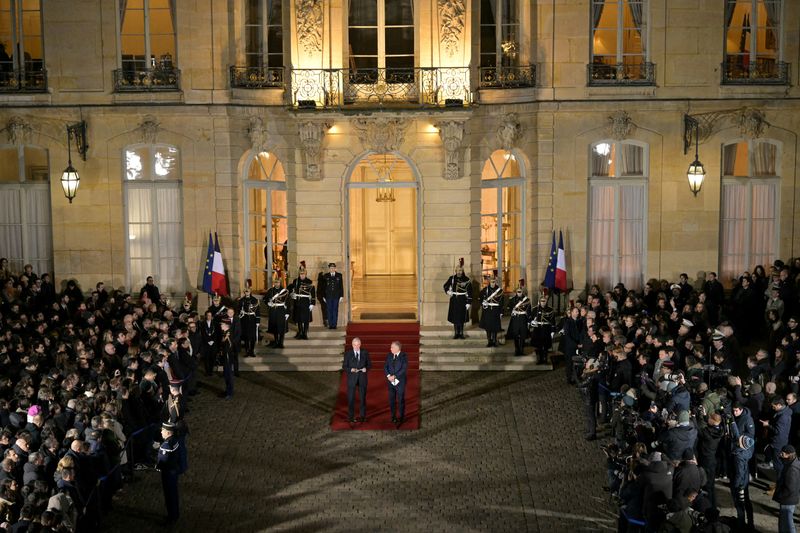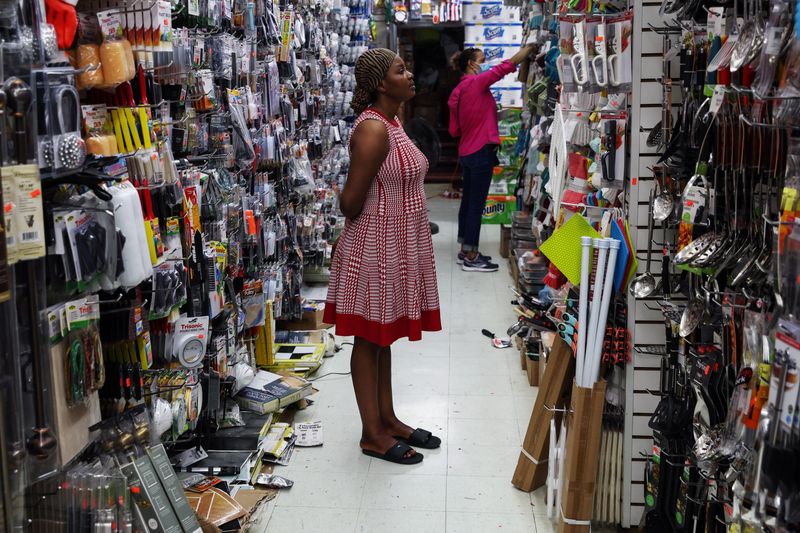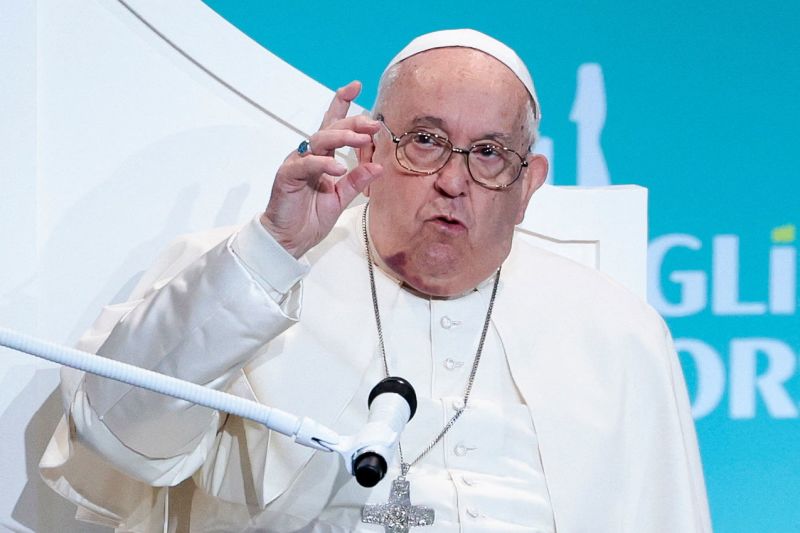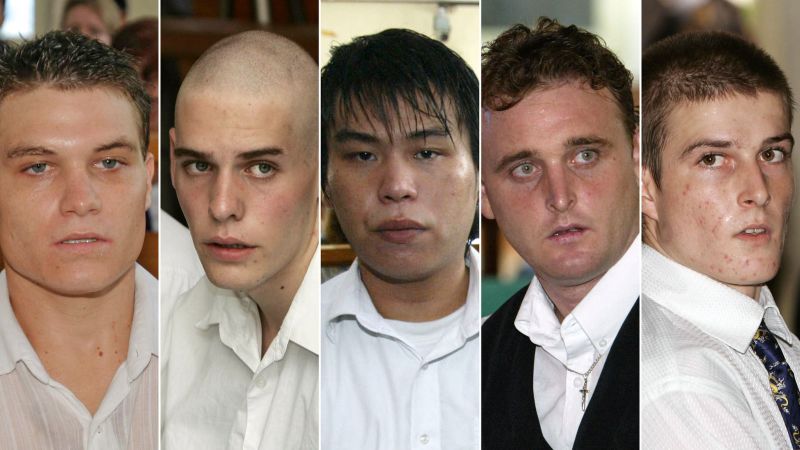Analysis-Macron has a new prime minister but the same old problems

By Michel Rose
PARIS (Reuters) – When veteran centrist Francois Bayrou, France’s new prime minister, was education minister in the 1990s, his plan to increase subsidies for private schools led to nationwide protests. He quickly caved in and would stay in the post for four more years.
Three decades later he will face a different force in the shape of a fractured and fractious parliament where one of his earliest tasks – as President Emmanuel Macron’s fourth prime minister of the year – will be to pass a budget for 2025.
First he must name a government which, like that of his predecessor Michel Barnier, will have minority support in parliament and be vulnerable to attack from far-right and left-wing opponents.
The ouster of Barnier and his cabinet – the first time France’s parliament had voted to remove a government since 1962 – seemed to stun even those behind the move. For now, there is cross-party support for emergency legislation to ensure government funding does not dry up – but then the hard work on a budget for next year will begin.
“The difficulties remain the same as under Michel Barnier,” Arnaud Benedetti, a professor at the Sorbonne university, told Reuters. “At least, a motion of no-confidence doesn’t seem likely in the very short-term.”
A Macron aide said Bayrou was the “most consensual candidate able to bring people together.” Socialists said he represented more of the same.
A career politician, Bayrou, 73, was the torch-bearer of centrism until Macron reshaped the political landscape in 2017, dynamiting the traditional mainstream parties in a campaign Bayrou rallied behind.
Bayrou has in the past talked tough on the risks posed by France’s rising debt pile.
He did so again on Friday, saying the country’s debt was a “moral problem” as much as a financial one. “I hear your warning on the seriousness of the situation and I agree,” he told Barnier.
But he has placed a high value on keeping the peace, whether with the unions, lawmakers or the myriad of powerful vested interests in France.
Keeping the peace in a National Assembly dominated by three warring factions will be nigh-on impossible, however.
Lawmakers’ pushback over the 2025 budget bill led to Barnier’s downfall and left-wing leaders say they may try to topple Bayrou should he also use special constitutional powers to ram through the budget without a vote in parliament.
“Bringing onboard demands from opposition parties may be fiscally costly and the degree of fiscal consolidation may be limited next year as a result,” said JP Morgan’s Raphael Brun-Aguerre in a note.
FAR-RIGHT’S BUDGET RED LINES ENDURE
Through the week Macron held talks with party chiefs spanning the centre-right Republicans to the Communists.
He appealed to all ‘Republican forces’ to unite but opted to resist Socialist Party calls to appoint a premier from within their ranks, unwilling to risk unwinding reforms that liberalised the euro zone’s second-largest economy and placed the pension system on a more financially sound footing.
Even so, the president’s 2023 pension reform will remain in his opponents’ crosshairs.
“Our red lines remain,” Jordan Bardella, leader of the far-right National Rally told reporters shortly after Bayrou was named. Those red lines include indexing pensions to inflation throughout 2025.
One opinion poll this week showed that 35%-38% of voters intended to support Bardella’s boss, Marine Le Pen, in the next presidential election due in 2027 – a level not seen before for the far-right leader and putting her in the lead.
Furthermore, even if Bayrou’s political opponents do not get in the way, the challenges for his future government will be immense.
It will need to reduce the budget deficit from a projected 6.1% for 2024 whilst keeping protest-prone trade unions at bay, increasing military spending for Ukraine and finding ways to support an ailing industrial sector.
Barnier had promised to bring the deficit down with tax rises for the wealthy and for big companies, as well as a curbs on the planned rise in pension payments. But these measures fell by the wayside when his government was toppled.
Former finance minister Bruno Le Maire, who has been grilled by lawmakers investigating his role in France’s failure to curb its deficit, gave a scathing indictment of parliament.
“This assembly taxes, spends, censors,” he said. “It has long lost any sense of economic and budget realities.”







